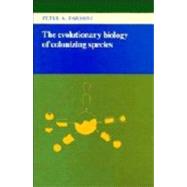
Note: Supplemental materials are not guaranteed with Rental or Used book purchases.
Purchase Benefits
What is included with this book?
| Preface | |
| Introduction: colonists and habitats | |
| Genetics and ecology | |
| Physical conditions, resources, and ecological phenotypes | |
| Variability in natural populations | |
| Genetic variability, ecological phenotypes, and stressful environments | |
| Colonizing phenotypes and genotypes | |
| Behavioural variability in natural populations | |
| Habitat selection | |
| The ecobehavioural phenotype: generalists and specialists | |
| The ecobehavioural phenotype: biological control and domestication | |
| Parasites and plants | |
| Discussion and conclusions | |
| Appendix | |
| References | |
| Index | |
| Table of Contents provided by Publisher. All Rights Reserved. |
The New copy of this book will include any supplemental materials advertised. Please check the title of the book to determine if it should include any access cards, study guides, lab manuals, CDs, etc.
The Used, Rental and eBook copies of this book are not guaranteed to include any supplemental materials. Typically, only the book itself is included. This is true even if the title states it includes any access cards, study guides, lab manuals, CDs, etc.